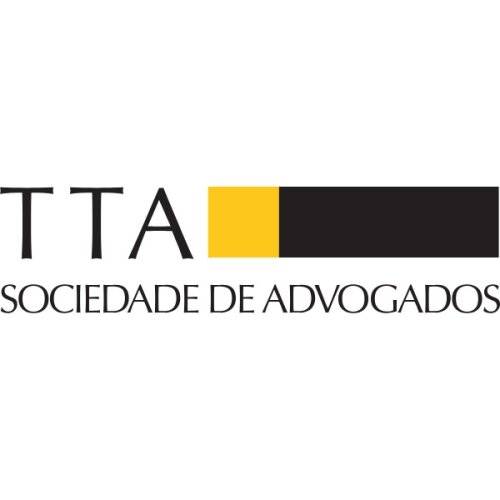Best Nursing Home Abuse Lawyers in Mozambique
Share your needs with us, get contacted by law firms.
Free. Takes 2 min.
Or refine your search by selecting a city:
List of the best lawyers in Mozambique
About Nursing Home Abuse Law in Mozambique
Nursing home abuse refers to a single or repeated act, or lack of appropriate action, occurring within any relationship where there is an expectation of trust which causes harm or distress to an older person. In Mozambique, nursing home abuse has increasingly become a concern as the elderly population grows and the operational standards of elder care facilities are scrutinized. Although developed legal frameworks specifically targeting nursing homes are not extensive, general protections against abuse and neglect apply.
Why You May Need a Lawyer
There are several common situations when seeking legal help becomes essential in cases of nursing home abuse:
1. Evidence Collection: A lawyer can assist in gathering necessary evidence of abuse, including medical reports and witness testimonies.
2. Understanding Rights: Legal counsel can clarify the rights of residents under Mozambican law, ensuring families understand the protections available.
3. Navigating Legal Procedures: Lawyers are equipped to guide families through the legal processes involved in reporting abuse and seeking justice.
4. Compensation Claims: If abuse has resulted in injury or financial loss, a lawyer can pursue compensation on behalf of the victim.
5. Ensuring Accountability: Legal representation is crucial in holding institutions and perpetrators accountable and preventing further abuse.
Local Laws Overview
In Mozambique, while specific legislation targeting nursing home abuse might not be extensive, relevant laws can still be applied to protect the elderly:
1. Penal Code: General provisions against assault and neglect can be applied to cases of abuse.
2. Elder Protection Laws: Emerging policies focus on protecting the dignity and welfare of older citizens, including rights to safety and quality care.
3. Health Regulations: Standards set by health authorities for operating elder care facilities mandate the wellbeing and safety of residents.
Legal frameworks often rely on broader human rights and welfare provisions, with an increasing push for more specific ordinances addressing eldercare directly.
Frequently Asked Questions
1. What constitutes nursing home abuse?
Nursing home abuse includes physical, emotional, sexual, and financial harm, as well as neglect of basic needs.
2. How can I recognize signs of abuse or neglect in a nursing home?
Look for unexplained injuries, changes in behavior, poor hygiene, withdrawal from activities, and financial discrepancies.
3. Who can report nursing home abuse in Mozambique?
Anyone suspecting abuse-family, friends, employees, or the residents themselves-can report it to authorities.
4. Where do I report suspected nursing home abuse?
Reports can be made to local law enforcement, health authorities, or social services departments.
5. Can family members access the resident's medical records?
Family members often have the right to access medical records if they have legal guardianship or are the designated representative.
6. What legal rights do residents have in nursing homes?
Residents have rights to personal safety, adequate care, and freedom from abuse. These are protected under general Mozambican law.
7. How long does the legal process typically take?
The timeframe can vary significantly depending on the complexity of the case and the responsiveness of involved parties.
8. What are the typical outcomes of a legal case on nursing home abuse?
Outcomes can include civil compensation, criminal charges against perpetrators, and regulatory penalties for facilities.
9. Are there alternative dispute resolution options available?
Mediation or arbitration might be pursued for quicker resolutions, essentially when facilities are regulated by government oversight.
10. How can a lawyer help in preventing future abuse?
Lawyers can assist in drafting policies, advocating for systemic changes, and ensuring compliance with legal standards.
Additional Resources
For further support and information, consider reaching out to:
1. Ministry of Health: Offers guidance on elder care standards and oversees facility regulations.
2. Ministry of Justice: Provides resources on legal rights and the justice process.
3. Non-Governmental Organizations (NGOs): Groups like HelpAge International work on elder rights and community awareness.
Next Steps
If you suspect nursing home abuse and need legal assistance, follow these steps:
1. Gather Evidence: Collect any physical evidence, documentation, or witness accounts of the suspected abuse.
2. Report: Make a formal report to local authorities and relevant government bodies.
3. Consult a Lawyer: Seek professional legal guidance to discuss your situation and potential actions.
4. Document Everything: Keep detailed records of communications, reports, and any legal proceedings.
5. Follow Up: Ensure continuous communication with your legal representative and stay updated on the case progress.
Lawzana helps you find the best lawyers and law firms in Mozambique through a curated and pre-screened list of qualified legal professionals. Our platform offers rankings and detailed profiles of attorneys and law firms, allowing you to compare based on practice areas, including Nursing Home Abuse, experience, and client feedback.
Each profile includes a description of the firm's areas of practice, client reviews, team members and partners, year of establishment, spoken languages, office locations, contact information, social media presence, and any published articles or resources. Most firms on our platform speak English and are experienced in both local and international legal matters.
Get a quote from top-rated law firms in Mozambique — quickly, securely, and without unnecessary hassle.
Disclaimer:
The information provided on this page is for general informational purposes only and does not constitute legal advice. While we strive to ensure the accuracy and relevance of the content, legal information may change over time, and interpretations of the law can vary. You should always consult with a qualified legal professional for advice specific to your situation.
We disclaim all liability for actions taken or not taken based on the content of this page. If you believe any information is incorrect or outdated, please contact us, and we will review and update it where appropriate.
Browse nursing home abuse law firms by city in Mozambique
Refine your search by selecting a city.








